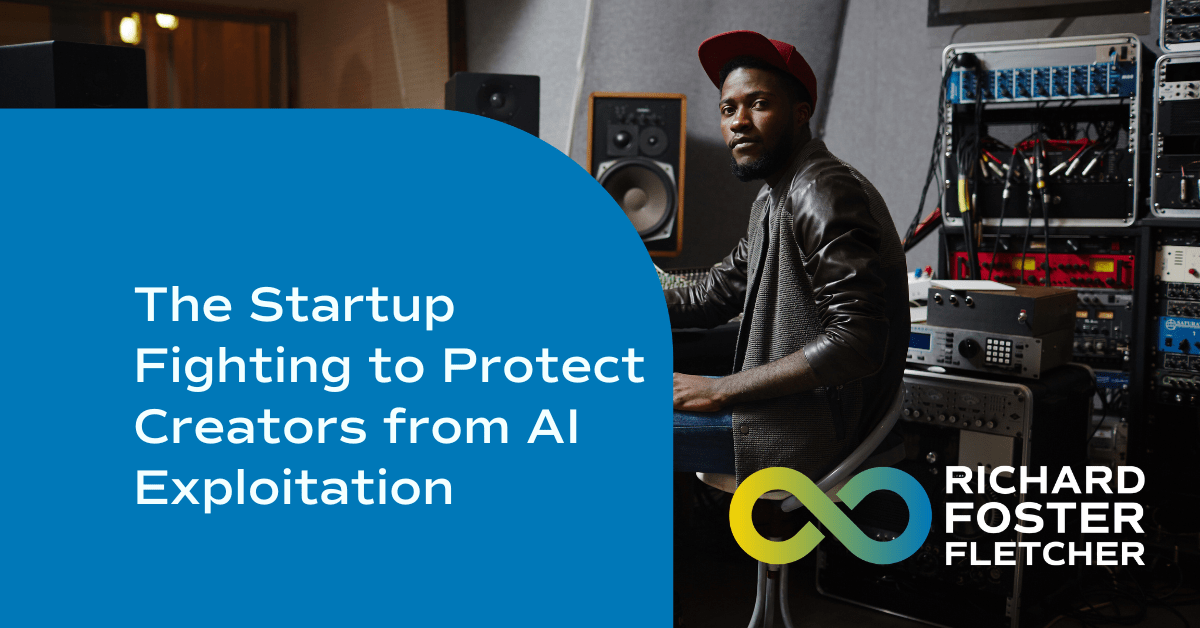
The Startup Fighting to Protect Creators from AI Exploitation

AI’s ability to generate art, music, and literature using copyrighted material without permission is a growing concern for creators worldwide. As artificial intelligence rapidly disrupts creative industries, the protection of intellectual property (IP) faces unprecedented challenges.
Rising to meet this challenge, the startup ‘Story’ is championing a bold initiative to protect creators’ rights and preserve the value of human ingenuity against AI’s expansive reach.
The Growing Threat of AI to Intellectual Property
Generative AI models, such as those developed by OpenAI, require vast amounts of data to function effectively. This data often includes copyrighted material, which is used without consent or compensation to train AI systems. These practices raise significant ethical and legal questions, as they risk undermining the very foundation of intellectual property rights. When AI systems can replicate or even surpass human creativity using this data, the incentive for original creators to continue their work is severely diminished.
Creativity thrives on the potential for reward—whether that reward is financial, reputational, or the satisfaction of creating something unique. However, when AI-generated content becomes the norm, human creativity risks being devalued. The danger lies in shifting the creative process from one of innovation to one of replication, potentially leading to a stagnation in artistic and creative progress. Without strong incentives to create new work, there is a real risk that the cultural and artistic landscape will be dominated by recycled ideas rather than fresh, groundbreaking concepts.
This concern is not just theoretical. If creators perceive that their work can be easily copied or outdone by AI without any form of recompense, they may lose the motivation to innovate. Over time, this could lead to a decline in the production of original works and a greater reliance on AI-generated content, which, by its nature, is derivative of existing material. To prevent this stagnation, it is crucial to maintain and strengthen the incentives for human creativity.
Story: A Solution to Protect Creatives
Amid this challenging landscape, Story, a San Francisco-based startup, has emerged as a champion for creatives. Founded in 2022 and now valued at $2.25 billion after a recent $80 million funding round led by Andreessen Horowitz, Story is leveraging advanced technology to protect intellectual property from AI exploitation.
Story’s platform allows creators to secure their IP by storing it in a manner that provides an immutable record of ownership. This feature is crucial in an age where the line between human and AI-generated content is increasingly blurred. By embedding licensing fees and royalty-sharing arrangements into their platform, Story enables creators to automate the enforcement of their IP rights. These digital contracts ensure that creators are compensated fairly for the use of their work, maintaining the integrity of their creative contributions (CoinTrust).
What sets Story apart is its focus on cutting out intermediaries, such as lawyers and agents, who traditionally play a role in resolving copyright disputes. Story’s platform simplifies the process by allowing creators to set the terms for how their content can be used directly within their system. This not only reduces the time and cost associated with protecting IP but also ensures that creators maintain control over their work in a more transparent and efficient manner.
Tackling AI Copyright Theft
Story is actively addressing the pressing issue of AI-driven copyright theft. Generative AI models, like those powering popular AI tools and chatbots, require large datasets for training. These datasets often include copyrighted material, which is used without proper authorisation, exacerbating the problem of IP theft. Story’s platform offers a solution by providing a secure and transparent method for tracking and compensating creators whose work is used to train these AI models.
SY Lee, CEO of Story, has emphasised the long-term risks to AI companies if they continue to use copyrighted material without proper compensation. Lee argues that “great IP is essential for sustainable growth in AI” and that without quality, human-created data, AI models will struggle to improve and evolve. By ensuring that creators are compensated for their contributions, Story is not only protecting individual rights but also fostering a more sustainable and ethical AI ecosystem.
The Broader Impact of Story’s Approach
Story’s approach to IP protection could have far-reaching implications beyond the creative industries. By providing a transparent and secure record of ownership, Story helps resolve disputes over intellectual property more effectively than traditional methods. This is particularly important in sectors like media, entertainment, fashion, and even technology, where the integrity of IP is crucial to business success (TechDemand) (Beyond the Hype).
However, the adoption of Story’s approach is not without its challenges. Issues such as scalability, legal recognition, and user education must be addressed for their solution to become mainstream. The success of Story and similar platforms will depend on their ability to overcome these obstacles and demonstrate the tangible benefits of their approach to a broader audience (Beyond the Hype).
Story’s innovative use of blockchain technology offers a promising solution to the challenges posed by AI, providing creators with the tools they need to protect their work in a digital age. By automating IP enforcement and reducing reliance on intermediaries, Story is empowering creators to maintain control over their intellectual property and ensure they are fairly compensated. However, for this technology to reach its full potential, it must gain wider acceptance and integration into existing legal frameworks. The future of creativity may well depend on how effectively we can harness blockchain to protect the rights of those who fuel innovation.
### Key Questions
- How can legal systems be updated to support the widespread use of blockchain in IP management?
- What strategies can be implemented to overcome the scalability and adoption challenges of blockchain technology?
- How can startups like Story ensure that their solutions are accessible and beneficial to all creators, not just those with significant resources?
















